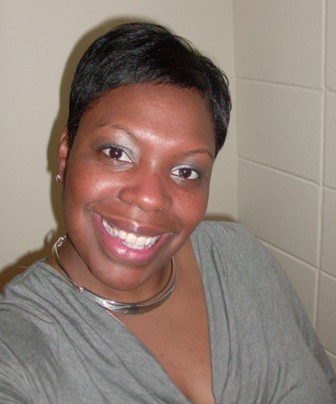By Aly Jiselle

The Harlem Renaissance, Ayanna explained, was a “focal point for African-Americans to express themselves through the arts.” A major catalyst was an event organized by Charles S. Johnson in 1924. It was a celebration of African-American writers and was the largest gathering of its kind, attracting over 100 Black artists and numerous White publicists who were able to bring attention to their works.
After explaining the origin of the Harlem Renaissance, including the rise of Black churches that met the social and political needs of African-Americans, Ayanna discussed prominent writers who hold a place in history as some of America’s first outspoken Black freethinkers.
Countee Cullen, for example, wrote “The Black Christ” which aroused controversy for its depiction of Jesus as a Black man. He also wrote “Heritage,” which exposes the “double consciousness” of African-Americans. This sense of “two-ness,” Ayanna explained, was a “bipolar identity” Blacks like Cullen experienced when their own identity and accomplishments conflicted drastically with how they viewed themselves through the eyes of Whites. In “Pagan Prayer” Cullen questioned why Blacks are still living in despair. He couldn’t understand why god would allow such injustice.
Ayanna then discussed other Black freethinkers of the Harlem Renaissance and she read excerpts of their works. She focused mainly on Langston Hughes, who wrote “Goodbye Christ,” and Claude McCay, author of “Fresh from the Lecture.” She also discussed A. Phillip Randolph, whom she identified as “one of the founding fathers of the Civil Rights movement.” Randolph is credited as being a Christian although he vehemently rejected religion and defined prayer as “nothing more than a fervent wish.” Ayanna made the interesting point that people who do good things in history, as Randolph did, are often assumed to be Christian, and suggested that this is the result of Christians being “uncomfortable” believing that atheists can perform good deeds. She concluded with an excerpt from Langston Hughes’ poem “Who, But the Lord?” in which he questions why god doesn’t help Blacks in distress.
After her presentation, Ayanna responded to questions from a sizable audience. Conversations ensued about the role religion plays in oppressing African-Americans, and about the steps teachers can take to combat the religious beliefs of their students. She was also asked if there were any female freethinkers during the Harlem Renaissance, and she mentioned Zora Neale Hurston and Butterfly McQueen. Ayanna discussed the mission of Black Atheists of America and the “social suicide” Black atheists face because of their non-belief.
Ayanna’s visit was not only an opportunity to educate Minnesota Atheists about the Black atheist experience, it also prompted efforts to establish the first chapter of Black Atheists of America in Minnesota. Anyone interested in getting involved or donating to Black Atheists of America should visit blackatheistsofamerica.org.

